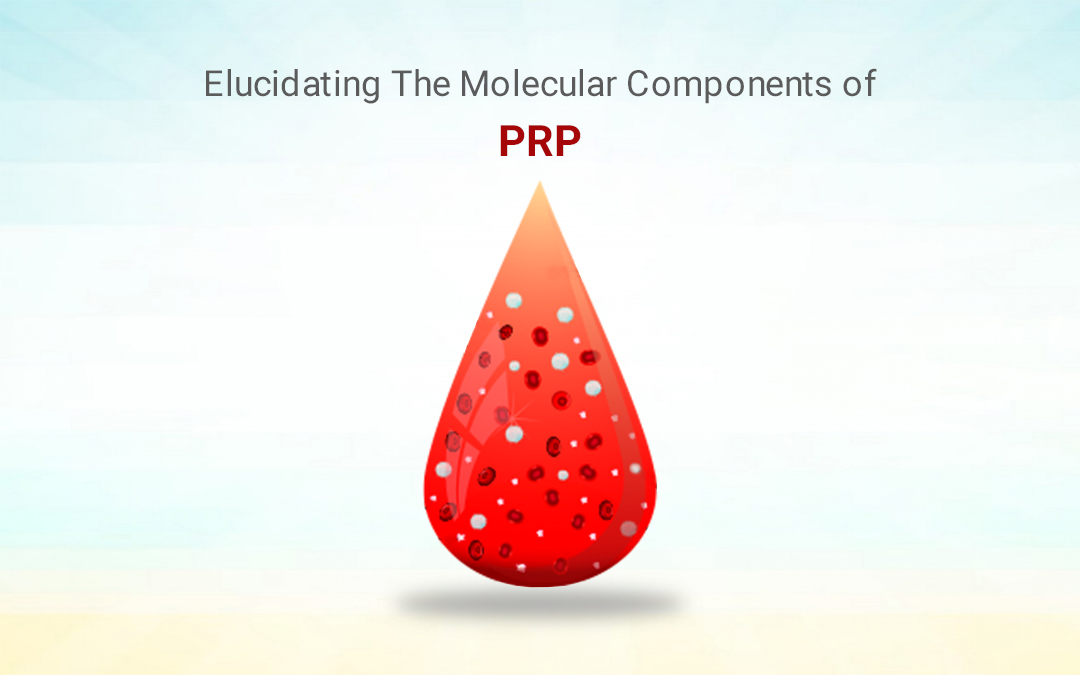Platelet-rich plasma (PRP) therapy has received a lot of attention in the past two decades, owing to its prospective applications in regenerative medicine, such as dermatology, oral and maxillofacial surgery, sports medicine, and veterinary medicine. Platelets are one of the main components of PRP including about 1100 distinct proteins, many of which have undergone post-translational changes, yielding approximately 1500 protein-based bioactive factors (Boswell, 2012).
The Bioactive Factors
The functional platelet components are divided into three types of granules: alpha, delta, and lambda granules, which make up around 10% of the overall platelet volume. Integrins, platelet endothelial cell adhesion molecules (PECAM), immunoglobulin family receptors, and other membrane-bound proteins are found in these granules. These cell proteins are released into the surrounding space, where they serve as networking impulses to improve communication. Aside from that, there are nearly 300 protein molecules that act as communication channels for the passage of various repairing and healing processes.
In general, all functional properties of PRP are determined by the cytokine profile released by platelets. All of the crucial components discussed here are fundamentally held in thrombocyte alpha granules, which play an important role in regulating key processes like chemotaxis, regulatory mitogenesis, and cellular differentiation. Furthermore, these cells encourage local mesenchymal tissue-specific stem cells, as well as vascular endothelial cells, to move to the injury site. The cells then play a vital role in tissue regeneration, repair, and vascularization. Platelets release some critical growth factors, including:
- Platelet-Derived Growth Factors: Improves collagen synthesis, which helps your skin retain its flexibility, as well as cellular proliferation and macrophage activation. PDGF improves the elasticity of the skin and helps in skin rejuvenation and therefore, PRP is being used extensively in anti-ageing therapies.
- Transforming Growth Factors: TGFs are responsible for increasing the production of type 1 collagenase, promoting revascularization, and other functions. This anti-inflammatory cytokine also inhibits the production of toxic cells and bone resorption. Due to their characteristics of inhibiting bone resorption, TGFs play a critical role in healing sports injuries and musculoskeletal problems.
- Vascular Endothelial Growth Factor: VEGF stimulates the development of new blood vessels and the migration of endothelial cells and mesenchymal stem cells to the injured tissue. Vascular Endothelial Growth Factors play an important role in wound healing and facilitate tissue regeneration.
- Epidermal Growth Factors: Biological proliferation, revascularization, and release of essential cellular products by mesenchymal stem cells and endothelial cells are all regulated by epidermal growth factors.
- Fibroblast Growth Factors (FGFs): These are necessary for the development of native mesenchymal stem cells as well as the proliferation of a variety of other cells. FGFs have a pivotal role in PRP because they facilitate tissue regeneration, including blood vessels, skin, bones, adipose, tooth, nerves, cartilage tissues, etc.
The Outlook
PRP is an effective regenerative medicine treatment. Different PRP types can be obtained using various ways, depending on the concentration of bioactive compounds. Additional bioactive factors may be implicated in immune response modulation in addition to platelets, which are a prominent PRP factor. By eliminating potential pathogens and increasing growth factor release, PRP rich in leukocytes can speed up the healing process. The high concentration of white blood cells in PRP, on the other hand, may have an inhibiting effect. The ideal concentration of platelets, leukocytes, and other plasma components has yet to be determined, and researchers should be aware that the PRP impact is not solely dependent on the number of thrombocytes.
Advancells Diagnostics PRP kit is a point-of-care cellular platform for isolating and concentrating autologous growth factors, stem cells, and accessory cells that may aid in improving healing conditions and using the power of autologous growth factors. Connect with us at [email protected] to procure high-quality PRP kits. You can also get in touch with us at +91-9654321400.
